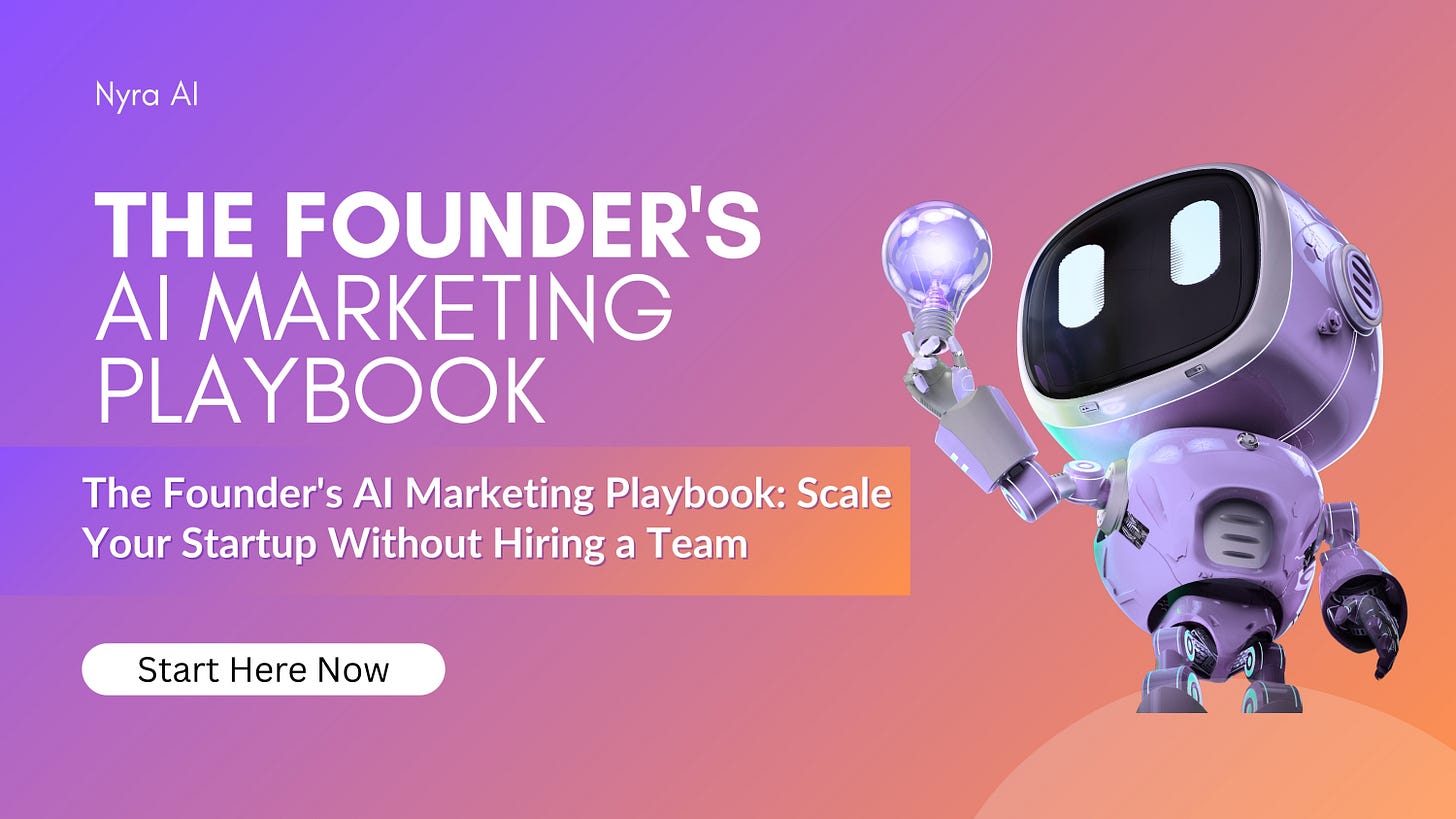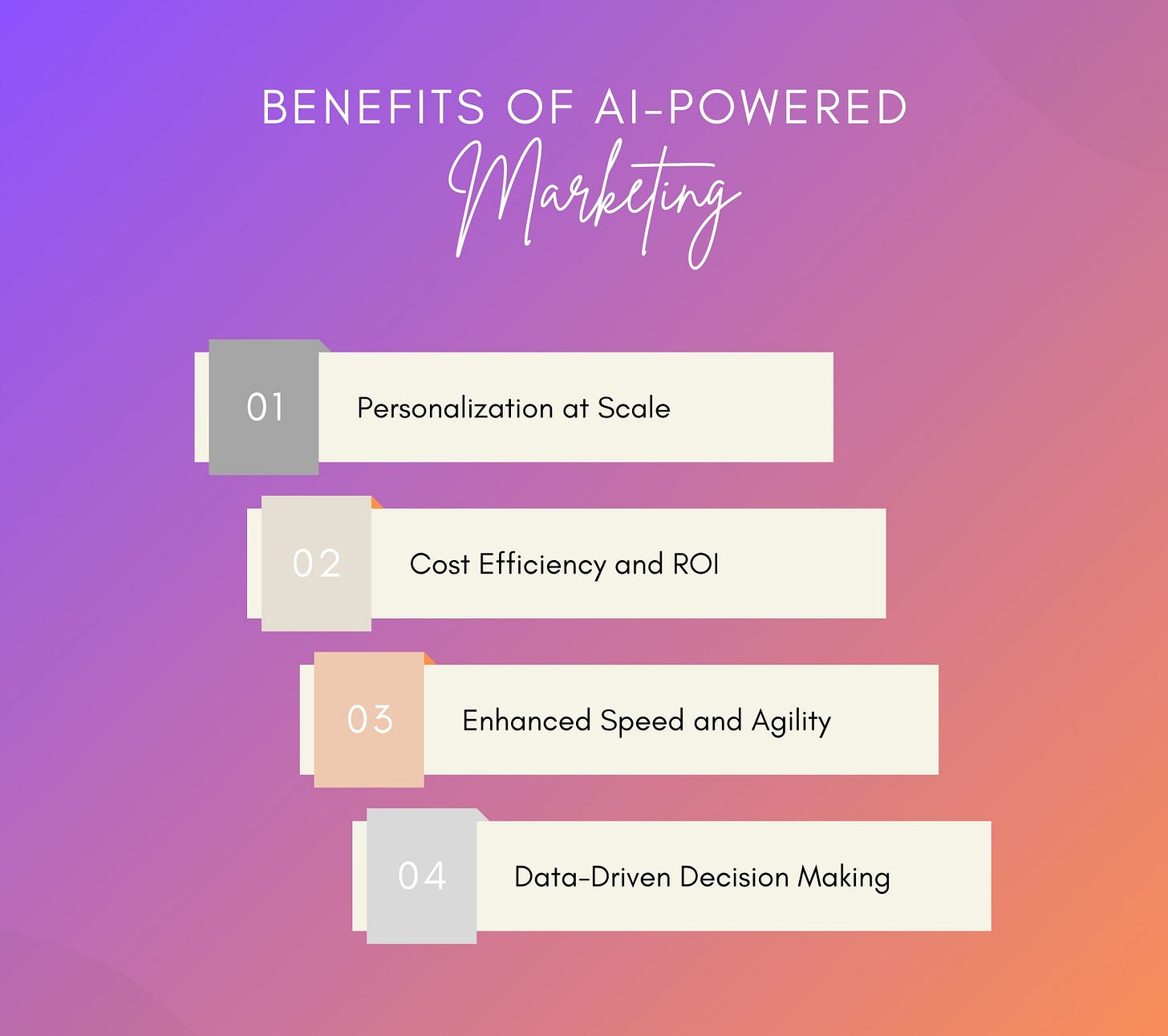The Founder's AI Marketing Playbook: Scale Your Startup Without Hiring a Team
The marketing landscape is experiencing a seismic shift as artificial intelligence transforms how founders approach customer acquisition, engagement, and growth. Today's AI-powered entrepreneurs aren't just using technology as a tool they're fundamentally reimagining marketing strategies through intelligent automation, predictive analytics, and personalized experiences at scale.
What Is AI-Powered Marketing for Founders?
Understanding AI Marketing Fundamentals
AI-powered marketing represents the integration of machine learning algorithms, predictive analytics, and automated decision-making into core marketing functions. For founders, this means leveraging AI to optimize everything from content creation and customer segmentation to campaign performance and conversion tracking.
Key AI Marketing Technologies
Unlike traditional marketing approaches that rely heavily on intuition and manual processes, AI-driven strategies use data patterns to predict customer behavior, automate repetitive tasks, and deliver personalized experiences that drive measurable results. Modern AI marketing tools can analyze vast amounts of customer data in real-time, identify high-value prospects, create dynamic content variations, and even predict which marketing channels will yield the highest ROI for specific customer segments.
Why Startups Need AI Marketing
This technological evolution allows resource-constrained startups to compete with established enterprises by maximizing efficiency and impact. Small teams can now execute sophisticated marketing campaigns that previously required large marketing departments and substantial budgets.
How to Implement AI-Powered Marketing Strategies
1. Building Your Data Foundation
The implementation journey begins with establishing clear data foundations. Founders should start by consolidating customer data from multiple touchpoints website interactions, social media engagement, email responses, and purchase history. This unified data becomes the fuel for AI algorithms to generate actionable insights.
2. Starting with Marketing Automation
Next, identify high-impact automation opportunities. Email marketing sequences, social media posting, lead scoring, and customer support responses are excellent starting points. Platforms like HubSpot, Mailchimp, and Buffer now offer AI-enhanced features that can automatically optimize send times, subject lines, and content variations based on historical performance data.
3. AI-Powered Content Creation
Content creation represents another powerful application area. AI writing assistants can help founders generate blog posts, social media content, and ad copy variations while maintaining brand voice consistency. Tools like ChatGPT, Jasper, and Copy.ai can produce initial drafts that founders can refine and personalize.
4. Implementing Predictive Analytics
Predictive analytics should follow once sufficient data accumulates. Use AI to forecast customer lifetime value, identify churn risks, and predict which prospects are most likely to convert. This intelligence enables more strategic resource allocation and proactive customer retention efforts.
Benefits of AI-Powered Marketing
Personalization at Scale
The advantages extend far beyond simple time savings. AI-powered marketing delivers unprecedented personalization capabilities, allowing founders to create individual customer journeys at scale. Each prospect receives content, offers, and communications tailored to their specific interests, behavior patterns, and stage in the buying process.
Cost Efficiency and ROI Optimization
Cost efficiency represents another significant benefit. AI algorithms continuously optimize ad spending by identifying the most effective channels, audiences, and creative combinations. This results in lower customer acquisition costs and higher return on marketing investment crucial advantages for cash-conscious startups.
Enhanced Speed and Agility
Speed and agility become competitive advantages when AI handles routine optimization tasks. Founders can launch campaigns faster, test variations more efficiently, and pivot strategies based on real-time performance data rather than waiting for monthly reports.
Data-Driven Decision Making
Data-driven decision making replaces guesswork. AI provides clear insights into what's working, what isn't, and why certain strategies succeed with specific customer segments. This intelligence enables more confident strategic decisions and reduces the risk of costly marketing mistakes.
What to Avoid in AI Marketing Implementation
The Over-Automation Trap
Over-automation poses the biggest risk for founders. While AI excels at optimization and efficiency, human creativity, empathy, and strategic thinking remain irreplaceable. Avoid automating customer interactions that require genuine human connection or complex problem-solving.
Data Quality Issues
Data quality issues can undermine entire AI marketing initiatives. Poor data inputs lead to flawed algorithmic decisions, so invest time in cleaning and organizing data before implementing AI solutions. Garbage in, garbage out remains a fundamental principle.
Privacy and Compliance Concerns
Don't ignore privacy regulations and ethical considerations. Ensure AI marketing practices comply with GDPR, CCPA, and other relevant privacy laws. Transparent data usage and genuine value exchange with customers build trust and sustainable growth.
Tool Overload Syndrome
Avoid the temptation to implement too many AI tools simultaneously. Start with one or two high-impact areas, master those applications, then gradually expand your AI marketing toolkit based on proven results and organizational capacity.
Frequently Asked Questions
Q: How much does AI marketing implementation cost for startups?
A: Many AI marketing tools offer freemium tiers or affordable monthly subscriptions starting around $50-200 per month. The investment typically pays for itself through improved efficiency and conversion rates within the first quarter.
Q: Do I need technical expertise to implement AI marketing?
A: Most modern AI marketing platforms are designed for non-technical users with intuitive interfaces and guided setup processes. However, having someone comfortable with data analysis and digital tools accelerates implementation success.
Q: How quickly can founders expect to see results from AI marketing?
A: Initial automation benefits appear within weeks, while predictive insights and optimization improvements typically emerge after 2-3 months of data collection and algorithm training.
Q: Will AI replace human marketers entirely?
A: AI enhances human capabilities rather than replacing them. Strategic thinking, creative conceptualization, and relationship building remain distinctly human strengths that complement AI's analytical and optimization capabilities.
Q: What's the best AI marketing tool for beginners?
A: Start with all-in-one platforms like HubSpot or Mailchimp that offer AI features within familiar marketing workflows. These provide a gentler learning curve compared to specialized AI tools.



